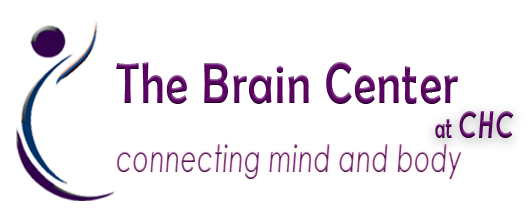
Welcome to The Brain Center
at – Cherubino Health Center
At the Brain Center we specialize in the treatment of patients suffering from brain and nervous system disorders.
Some of the conditions that we typically see are listed below.

–
Dr. Anna Cherubino, DSc, LMHC, LCPC (Brain Center Director)
As an Integrated Holistic Center: We
- Assess brain and nervous system function
- Determine the level of injury or dysfunction
- Determine the causes of that dysfunction
- Develop drug-free and surgery-free treatments that are designed to improve, repair, and restore you to your fullest function possible.
Visit our Functional Neurology page.
What’s a Brain Center?
- Our combination of physical and psychological medicine.
- The division of CHC that recognizes the cyclic nature of physical dysfunction and altered cognition.
- The crossroads where your chronic traumas, thoughts, feelings, and experiences meet tangible solutions, both physical and emotional/mental.
- A necessary piece of CHC’s goal of treating the whole person.
- Strengths-based, functional medicine for body and mind.
Combination Therapy
- The techniques of the brain center have been developed concurrently, for all types of conditions and people, and are fit together for each patient individually.
- Our practitioners have the ability to customize your in-office care to support your treatment plan. Patients of our providers can freely move between interventions, within The Brain Center, The Spine Center, and CHC as a whole.
The brain is an incredible and complex organ that wants to operate in the smoothest, most efficient way possible!
With the help of functional neurology, and neuroplasticity we are able to help people improve and recover from conditions that were once thought to be untreatable.
The treatments offered at The Brain Center challenge the brain to:
- Overcome injuries
- Correct inefficient development
- Improve communication between its different functional areas
- Improve communication with the rest of the body
Our mission at The Brain Center is to help you realize your brain’s full potential.
Whether you want help overcoming a life-altering injury or would like us to help you unlock unrealized potential such as in the case of ADHD or Autism, our treatments are designed to encourage the brain to synchronize its parts. The resulting improvement in communication and overall nervous system function can be remarkable and life-changing.
At the Center we have also seen amazing changes to people’s lives as a result of our treatments, such as:
- Recovery of balance and movement
- Enhanced memory
- Improved ability to think clearly
- Improved concentration
- Improved social interaction
We hope you find the information on this page helpful and I encourage you to contact us here at The Brain Center with your specific questions and concerns.
Some of the conditions that we typically see are listed below:
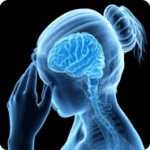
Headaches (High Complexity) CHC Headache Protocol: For those people suffering from High Complexity Headaches, our CHC Headache Protocol offers a holistic approach that is designed to identify the underlying causes of this chronic and debilitating condition. It is a suite of examination procedures, diagnostic studies, in-office treatments, and home care activities, designed by Dr. Chris Cherubino for high complexity moderate-to-severe headache sufferers. High Complexity Headaches: (Some examples of commonly seen symptoms:)
More/Less Information
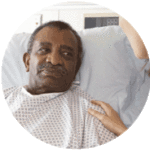
Stroke / TIA Strokes and Transient Ischemic Attacks (TIA) are injuries to the cells in the brain caused by insufficient blood flow. In a stroke, brain cells are damaged to the point of cell death, while a TIA is characterized by a transient disruption of blood flow that does not result in complete cell death. In both situations, the lasting effect on brain function can manifest as decreased ability to use a limb or to coordinate movements, altered speech patterns and difficulty speaking, reduced ability to feel various sensations, and a variety of others, depending on the area of the brain affected. At The Brain Center our goal is to improve, repair, and restore brain function and we believe that no matter what the cause of injury, the brain is always capable of adapting and overcoming, often to a surprising degree. Our therapies are designed to challenge the brain to recognize where it is dysfunctional, and to encourage it to develop strategies to restore the fullest function possible, either through tissue repair or establishment of new neurological pathways.
More/Less Information
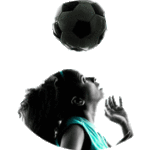
Concussion Concussions are caused by external impacts to the head, and can result in headaches, difficulty thinking clearly, trouble with memory, and more. The effects of repeated concussions can be especially obvious later in life, contributing to the development of disorders such as Parkinson’s, Chronic Traumatic Encephalopathy (CTE), and mood disorders. Prevention of injury with the use of protective equipment (such as helmets) is always the best method of avoiding concussion, but that is often not enough, as we see in many impact sports. The brain has an amazing ability to heal itself, but after an injury there are often residual symptoms and challenges that must be met with specific rehabilitative therapies to ensure maximum improvement and a return to full function. In the case of concussion, it is particularly important to help the brain recover through a full course of neurological rehabilitation activities and therapies.
More/Less Information
Although considered a milder form of Traumatic Brain Injury (TBI), concussion can still cause serious dysfunction within the brain.

Autism Autism Spectrum Disorder (ASD) has many presentations, but the most recognized characteristics are difficulty with social interaction (or a complete lack of interest in socializing), inability to communicate effectively, and highly patterned behavior such as compulsively organizing/ordering items and repetitive body movements. Sensory abnormalities are almost always present in people with ASD and are generally considered the reason for “stimming” behaviors (repetitive movements or sounds to stimulate the sensory cortex and “drown out” overwhelming environmental stimuli). The Brain Center’s role in treating patients with ASD is to refine nervous system synchronization to facilitate the best possible communication between functional areas within the brain, and with the rest of the body. The therapies provided at The Brain Center have been shown to greatly improve social skills, to increase compliance when performing tasks, and to regulate abnormal sleep patterns, ultimately leading to less irritability and conflict throughout the day.
More/Less Information
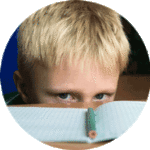
ADHD Attention Deficit Hyperactivity Disorder (ADHD) and Attention Deficit Hyperactivity Disorder – Predominantly Inattentive (ADHD-PI, formerly known as ADD or Attention Deficit Disorder) are neurodevelopmental disorders characterized by hyperactivity and inattentiveness, as well as difficulty controlling behavior. The Brain Center specializes in therapies aimed at restoring function to the neurotransmitter systems involved in ADHD, as well as refining communication between the parts of the brain responsible for focus and motivation. The purpose of our treatment is not to suppress hyperactive behavior, but to improve attention and concentration while helping the brain regulate itself so that uncontrollable and inappropriate behavior happens much less frequently.
More/Less Information
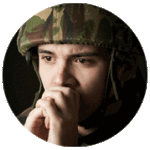
Post Traumatic Stress Disorder – PTSD Post Traumatic Stress Disorder (PTSD) is caused by exposure to traumatic events. It is characterized by distress and hypervigilence when the sufferer is exposed to stimuli similar to the original trauma. The connection between several parts of the brain is altered in patients with PTSD, resulting in decreased brain activity, and/or inappropriate association between areas which would normally regulate emotional responses. The ideal approach to management of PTSD varies between patients, often including non-physical approaches such as Cognitive Behavioral Therapy, however, advancements in treatment using neurological rehabilitation cannot be ignored. The brain is an orderly and efficient system, and it regulates our behaviors through patterns which can be disrupted by trauma. Neurological rehabilitation can restore those patterns and help to decrease the symptoms of PTSD significantly. At The Brain Center, our focus is on returning the brain to optimal function, while reestablishing appropriate neural responses to nonthreatening stimuli.
More/Less Information

Parkinson’s Parkinson’s Disease (PD) is a neurodegenerative disease which mostly affects the motor function systems of the central nervous system. This causes symptoms such as shaking, difficulty walking, and rigidity. Additionally, patients with PD often experience depression, anxiety, dementia, and behavioral problems. While there is no known cure for PD, a multi-faceted approach to improving quality of life is most effective. The therapies offered at The Brain Center are designed to improve synchronization between the brain and body, and in the case of PD our goal is to refine movements and help maintain motor function as long as possible. This is achieved through specific neurological therapies and lifestyle improvements.
More/Less Information

Multiple Sclerosis Multiple Sclerosis (MS) is a demyelinating disorder of the central nervous system (brain and spinal cord). Myelin is a covering over the nerve cells, which aids in proper nerve signal conduction and is extremely important in proper communication within the brain. The most common symptoms of MS are double vision, muscle weakness, difficulty coordinating movements, and sensation abnormalities. It is believed that MS is caused by an autoimmune response in the body, in which the immune system attacks the cells that make myelin. There are several classifications of MS, but regardless of type, the goal of treatment is to regain and maintain function throughout the phases of the disease. At The Brain Center, our treatments are aimed at strengthening communication through all parts of the nervous system and refining the functions of the affected nerves during phases of healing and repair. Our rehabilitation protocols are multi-faceted and employ a holistic health approach, designed to strengthen the central nervous system and help repair nerves affected by MS.
More/Less Information
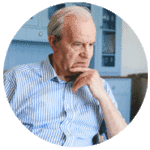
Anxiety / Depression Anxiety and depression can manifest differently, but are both characterized by feelings of uneasiness, worry, panic, dwelling, and sadness. There are many, many factors that contribute to experiencing anxiety and depression, one of which is inappropriate communication between parts of the brain responsible for regulating mood. Our goal at The Brain Center is to re-synchronize those brain areas, while establishing new, more effective communication within the brain in general. It cannot be said that anxiety and depression are only caused by physical nervous system dysfunction, however our therapies have been shown to greatly decrease the severity of symptoms through a physical approach. This approach is best utilized in tandem with mental health counseling focused on addressing any underlying psychological causes.
More/Less Information
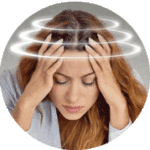
Vertigo / Dizziness Vertigo and Dizziness are both common disruptions of the vestibular system of the brain. Vertigo, specifically, is the sensation of spinning, while dizziness is a sensation of being unbalanced or lightheaded, without spinning. Many conditions can contribute to these disorders and a functional neurological approach is often effective at reducing or relieving the symptoms of vertigo and dizziness. At The Brain Center, we employ a thorough approach with every case of vertigo and dizziness. This is necessary to establish the cause of these sensations and to choose the correct treatment plan. Treatment complexity and duration, therefore, varies from vestibular rehabilitation to neurological rehabilitation to refine sensory interpretation at the level of the brain.
More/Less Information

Dementia and/or Alzheimer’s Alzheimer’s Disease (AD) is a neurodegenerative disease, and the most common cause of dementia. It is most commonly known for affecting memory, but in advanced stages it affects other behaviors and moods as well as bodily function. While the causes of AD are mostly unknown, the progression of the disease is well-established. Atrophy (shrinking, wasting) and degeneration of the cells in the brain, as well as accumulation of improperly-formed proteins called plaques leads to loss of function in the affected areas. There is no known cure for AD, and no available medication that has been shown to delay or stop the disease progression. At The Brain Center our goal in the treatment of AD is to improve neurological function and to give the brain every advantage in maintaining function as long as possible despite the progression of the disease. Our therapies are targeted toward improving memory and cognition. When dealing with the effects of AD, we make every effort to maintain and improve quality of life for the benefit of patients and their loved ones.
More/Less Information
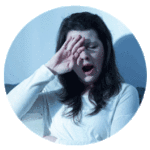
Insomnia Insomnia is defined as difficulty sleeping, whether it be an inability to fall asleep easily, or to stay asleep as long as required/desired. It is very common for this lack of appropriate sleep patterns to be accompanied by low energy levels, and mood changes such as irritability and depression. There are many factors that can contribute to insomnia, such as pain, stress, and substances like alcohol, caffeine, nicotine, or other drugs, even what are known as “bad sleep hygiene” habits, such as not keeping a consistent sleep schedule, looking at T.V./computer/phone screens near bedtime, and not performing regular exercise contribute to the severity of insomnia symptoms. The mechanisms which control sleep schedules reside within the brain, and at The Brain Center our goal is to refine the overall function of the brain, improving sleep through pattern-establishment and regulation of the internal circadian rhythm. Our treatments have been shown to have great results with a very high level of consistency, regardless of how long the patient has suffered from insomnia.
More/Less Information

Traumatic Brain Injury Traumatic Brain Injury (TBI) includes any damage sustained by the brain due to an external force. The most common causes of TBI are impacts to the head from automobile accidents, falls, sports, and domestic violence. Because the brain is, in some ways, floating inside the skull, the site of brain injury does not always directly relate to the site of impact on the head. For this reason, it is essential that a thorough neurological exam be performed to localize the site of injury and to determine which functions have been affected, or even lost. Here at The Brain Center, we know that brain injuries affect every patient differently. With the use of Functional Neurology we develop individualized treatment protocols, which are carefully tailored to encourage maximum improvement of brain function at the specific site of injury.
More/Less Information
“The Nervous System Holds the Key to the Body’s Incredible Potential to Heal Itself”
Sir Holder, MD, DC, PhD
“Anyone Could, If They Were So Inclined, Be the Sculptor of Their Own Brain”
Cajal 1897
We hope you find the information on this page helpful and we encourage you to contact us here at The Brain Center with your specific questions and concerns.
